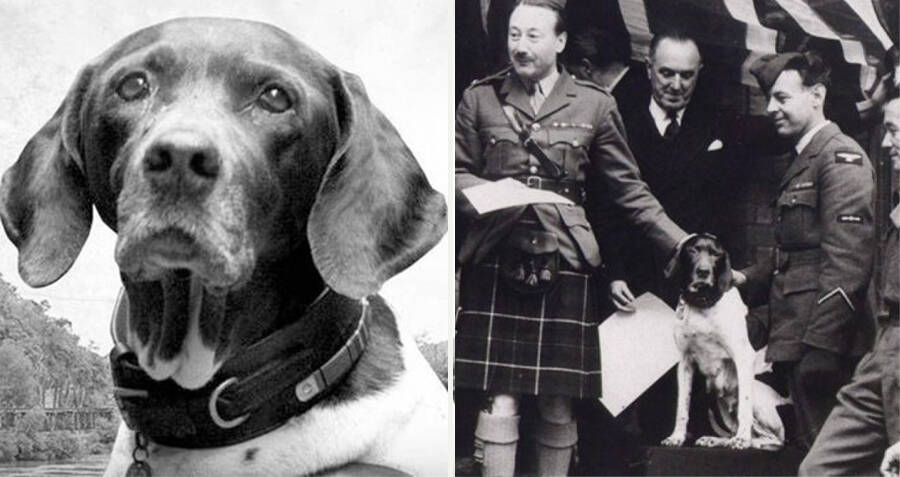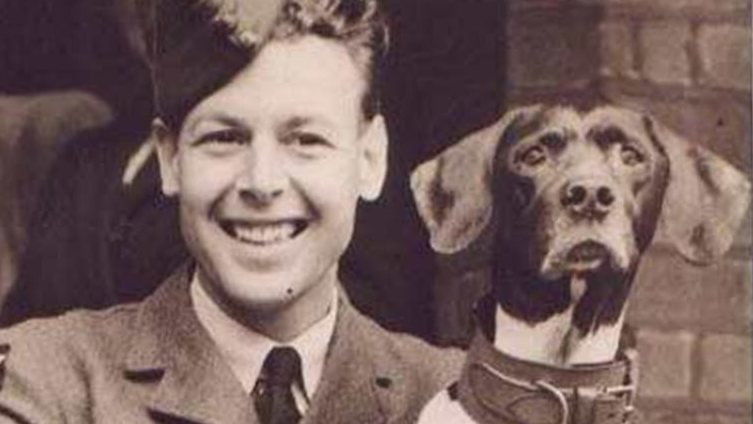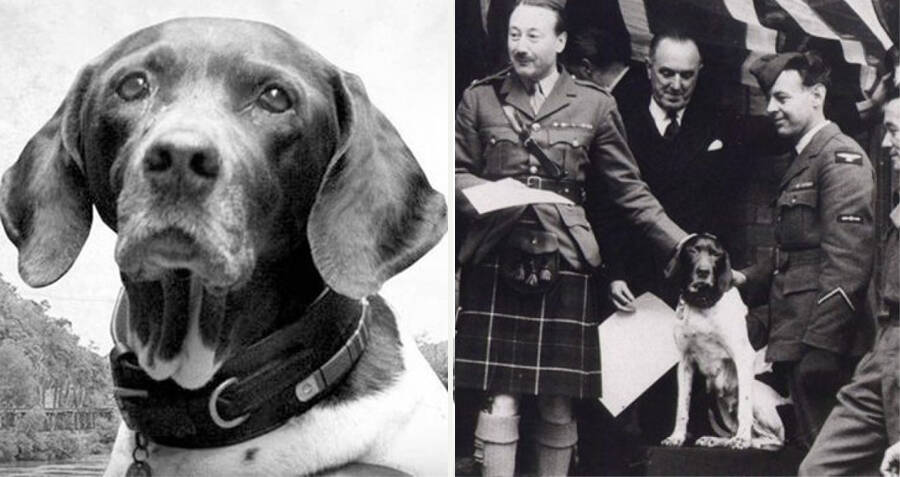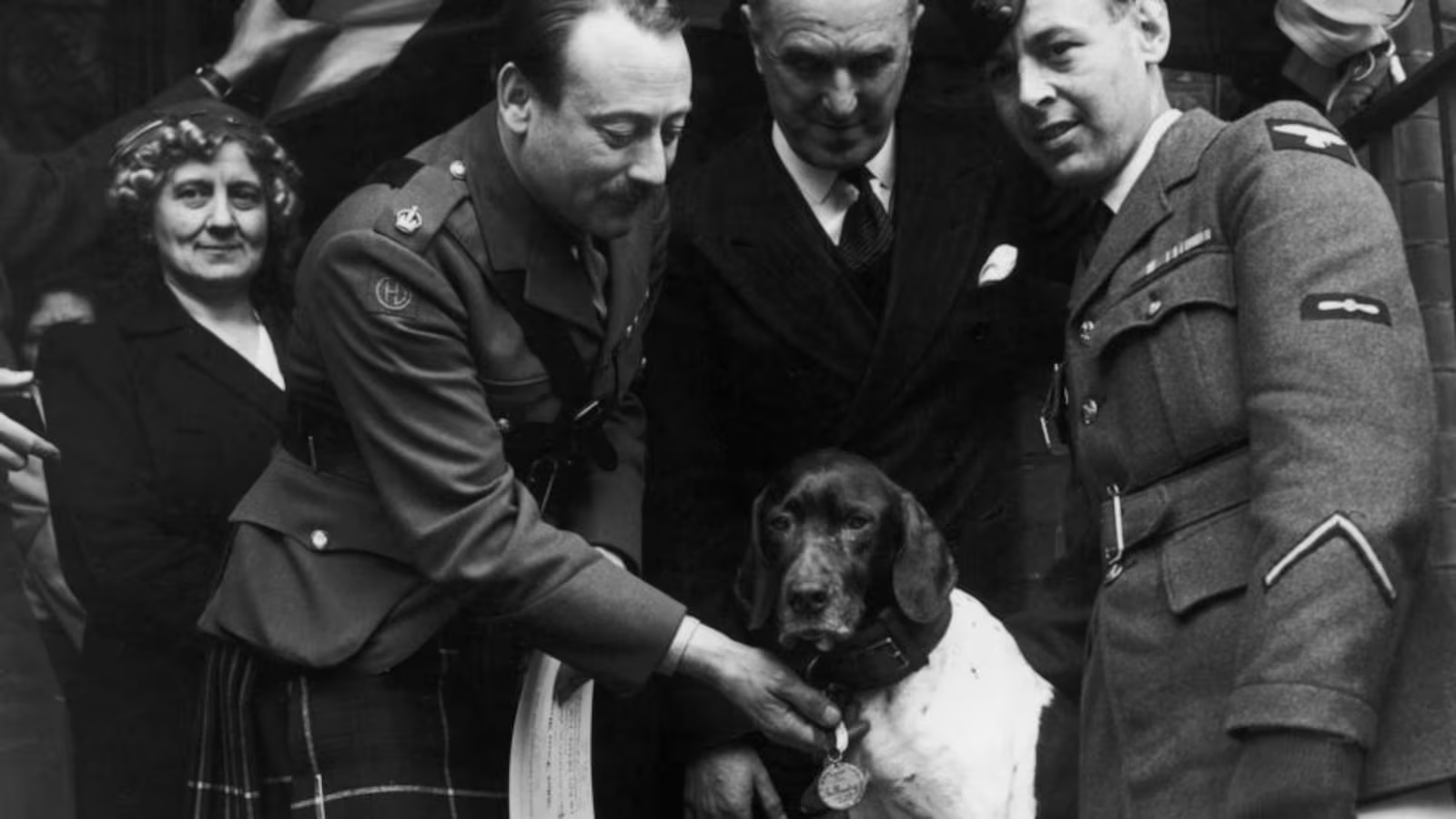The Unbreakable Bond: A Dog’s Ultimate Sacrifice in Echoes of Valor


Stories of war often spotlight soldiers, battles, and strategies, but sometimes, the most unforgettable tales emerge from the loyalty of those who never chose the battlefield—animals who became silent warriors. Echoes of Valor, a cinematic gem that has left audiences around the world weeping and inspired, is one such story. At its heart lies Rex, a German Shepherd whose courage under fire embodies the rawest form of loyalty and sacrifice. This is not merely a war movie; it is a meditation on devotion, the weight of memory, and the kind of love that transcends time and bloodlines.
A Tale Rooted in Sacrifice
The film opens in war-torn Europe, during the harrowing days of the Second World War. The audience is immediately immersed in bleak landscapes—barbed wire slicing through the night sky, searchlights sweeping across broken villages, and the silence of fear broken only by distant gunfire. Among this chaos stands a soldier hardened by years of conflict. Yet beside him is Rex, his loyal canine companion, whose eyes mirror both trust and determination.
The film wastes no time setting up its central theme: courage born not out of orders but of instinct and love. When a young boy and his mother stumble into danger, caught in the crossfire, Rex leaps into action. Without hesitation, he throws himself in harm’s way, intercepting a bullet meant for the child. The moment unfolds in agonizing slow motion—the soldier’s anguished cry, “Rex, no! Stay back!” echoes across the battlefield, while the boy’s mother clutches her son, whispering tearfully, “He’s our guardian angel now.”
This pivotal scene is not only heartbreaking but sets the tone for the entire narrative. Rex’s sacrifice is more than a moment of bravery—it is a ripple that will echo across decades, shaping lives, memories, and even the meaning of survival.

A Story Told Across Generations
Forty years later, the story shifts to a quieter world. The once-battle-hardened soldier is now a grizzled veteran, his body bent with age, his voice heavy with memories he has long refused to share. Sitting before a group of listeners—or perhaps simply a single confidant—he finally breaks his silence. For decades, he carried Rex’s sacrifice like an unhealed wound. Yet now, with trembling hands and a voice thick with grief, he reveals the truth:
“I owed him my soul, but he gave his life for a stranger’s child.”
This haunting confession is the film’s emotional backbone. It underscores how one act of loyalty in the chaos of war continued to shape the soldier’s understanding of life, love, and redemption long after the guns went silent.
The generational storytelling is what elevates Echoes of Valor beyond a typical war drama. It becomes not just a tale of one night in the 1940s but a meditation on how memory endures, how sacrifice is never forgotten, and how the smallest acts of courage can reverberate across decades.

Themes of Loyalty, War, and Redemption
At its core, Echoes of Valor is a story of loyalty in its purest form. Rex did not act because he was ordered to. He acted because he saw fear, innocence, and the threat of death—and his instinct was to protect, no matter the cost. This is the essence of unconditional love, and it is what makes the story resonate so deeply.
The film also grapples with the horrors of war. The barbed wire, the explosions, the whispered goodbyes—all of these elements remind the viewer that war is not only fought on battlefields but also in the hearts of those forced to endure it. Yet rather than focusing on the grand strategies of generals, Echoes of Valor shows us the intimate cost of war: the boy whose life is saved, the mother who owes everything to a dog, and the soldier who lives with survivor’s guilt.
Redemption is another powerful theme. The veteran’s silence for decades is not cowardice but a testament to how deeply the memory scarred him. By finally telling Rex’s story, he finds peace not only for himself but also for the memory of his faithful companion. The act of remembrance becomes an act of redemption.











